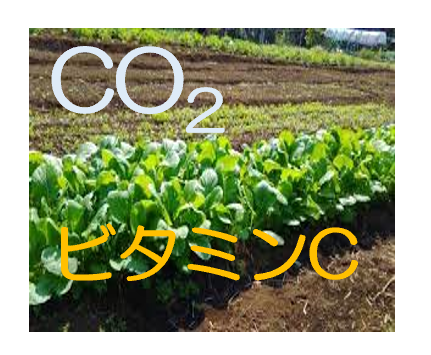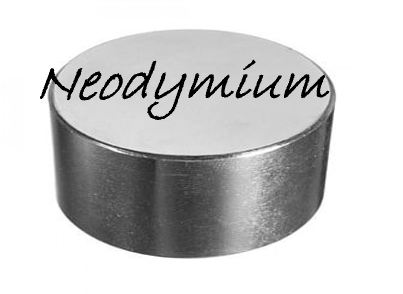概要
農業部門は、地球温暖化ガス(GHG)の主要な排出源の一つとして知られています。同時に、地球規模の気候変動は農業にも影響を及ぼしています。農業の持続可能な発展を強化するためには、環境にやさしい農法を推進し、経済的な価値を同時に高めることが重要です。農業の生産性向上のために、技術の進歩が起こっています。その中で、私たちは二酸化炭素(CO2)を利用した作物栽培に注目しました。本研究では、ホウレンソウにおけるCO2施肥の効果を、GHG排出と経済的な価値(エコ効率スコア)を用いて明らかにすることを目的としました。野菜の価値を代表する要素として、栄養価を考慮しました。私たちは、CO2施肥処理と従来の栽培方法によるホウレンソウの重さ、ビタミンC含有量、CO2排出量を測定しました。CO2排出量の推定にはライフサイクルアセスメント(LCA)を用いました。日本のモデルホウレンソウ農場における農業投入、栽培、輸送、流通センターのプロセスから、100gのホウレンソウのCO2排出量を推定しました。CO2施肥処理のホウレンソウのCO2排出量は29.0 g-CO2であり、従来の栽培方法では49.0 g-CO2でした。CO2施肥処理のホウレンソウの束の実質的な重さは、従来の栽培方法の1.69倍でした。CO2施肥処理によって生産された100gのホウレンソウのビタミンC含有量は平均で15.1 mgであり、従来の栽培方法では13.5 mgでした。最後に、上記の結果を基に、CO2施肥処理と従来の栽培方法のエコ効率スコアを評価しました。これにより、栄養価と環境への影響を統合的に評価することが可能となりました。その結果、CO2施肥処理(0.76)のエコ効率スコアは、従来の栽培方法(0.26)の2.9倍優れていることが示されました。この研究は、CO2施肥処理がホウレンソウの成長と栄養価を向上させる可能性があり、さらにCO2削減に寄与することを示唆しています。これは、ホウレンソウの生産においてCO2施肥処理を採用することの利点を強調し、環境の持続可能性だけでなく、経済的な価値も向上させることができることを示しています。農業部門は、世界の温室効果ガス(GHG)排出の主要な要因の1つであることが知られています。同時に、地球規模の気候変動は農業部門に影響を及ぼしました。農業の持続可能な開発を強化するためには、環境に配慮した農業を促進し、同時に経済的価値を高めることが重要です。農業の生産性を向上させるために、技術革新が行われています。その中でも、本研究は再生可能エネルギー生産工程において捨てられている、すなわちそのまま排出されているCO2の有効活用に着目し、野菜栽培への活用について、野菜品質(栄養)、環境影響(CO2排出量)の両側面から、検討を行いました。そのため、CO2追肥と慣行栽培の2つの区画において、重量、ビタミンC、およびCO2排出量を測定しました。100 gのホウレンソウを栽培した場合、CO2追肥区のCO2排出量は29.0g-CO2であり、慣行栽培では49.0g-CO2でした。CO2追肥区の重量は、慣行栽培より1.69倍大きくなりました。 ビタミンCは、CO2追肥区は15.1mgであり、慣行栽培は平均13.5mgでした。最後に、上記の結果に基づいて、CO2追肥区と慣行栽培のホウレンソウの生産の環境効率スコアを評価し、栄養価と環境への影響を統合した結果、スコアは、CO2処理の増加(0.76)が従来の生産(0.26)より2.9倍効率的であることを示しました。CO2追肥によりホウレンソウの成長と栄養価を高めることができ、さらにCO2削減に貢献する可能性があることを示唆しています。
The agricultural sector is widely recognized as a significant contributor to global greenhouse gas (GHG) emissions, and it has been greatly affected by the impacts of climate change. In order to promote sustainable agricultural development, it is crucial to encourage environmentally friendly farming practices while also increasing economic value. Technological advancements have played a key role in improving agricultural productivity, and one such advancement is the use of CO2 treatment in cultivation. This study focuses on investigating the effectiveness of elevated CO2 treatment in spinach production by evaluating its impact on GHG emissions and economic value using an eco-efficiency score. The nutritional value of the vegetable was considered as a representation of its economic value. We conducted measurements of weight, vitamin C content, and CO2 emissions for both elevated CO2-treated spinach and conventionally produced spinach. The CO2 emissions were estimated through a life cycle assessment (LCA) approach, taking into account various factors such as agricultural inputs, farming practices, transportation, and distribution processes at a model spinach farm in Japan. The results showed that the CO2 emissions from a 100-gram bouquet of spinach produced through elevated CO2 treatment were 29.0 g-CO2, whereas conventional production resulted in 49.0 g-CO2 emissions. Additionally, the net weight of a bouquet of elevated CO2-treated spinach was 1.69 times greater than that of conventionally produced spinach. The average vitamin C content per 100 grams of spinach was 15.1 mg for elevated CO2 treatment and 13.5 mg for conventional production. Based on these findings, we calculated the eco-efficiency scores for elevated CO2 treatment and conventional production of spinach, which allowed us to integrate the nutritional value and environmental impact. The scores revealed that elevated CO2 treatment (0.76) was 2.9 times more efficient than conventional production (0.26) in terms of eco-efficiency. This study suggests that elevated CO2 treatment has the potential to enhance the growth and nutritional value of spinach while also contributing to CO2 reduction. It highlights the benefits of adopting this approach in spinach production, not only for environmental sustainability but also for improved economic value.
雑誌名
Sustainability
論文タイトル
Environmental Impact and Nutritional Improvement of Elevated CO2 Treatment: A Case Study of Spinach Production
著者
Yuna Seo, Keisuke Ide, Nobutaka Kitahata, Kazuyuki Kuchitsu, Kiyoshi Dowaki
DOI
引用
Seo, Yuna, Keisuke Ide, Nobutaka Kitahata, Kazuyuki Kuchitsu, and Kiyoshi Dowaki. Environmental impact and nutritional improvement of elevated CO2 treatment: a case study of spinach production. Sustainability 2017, 9(10), 1854.



